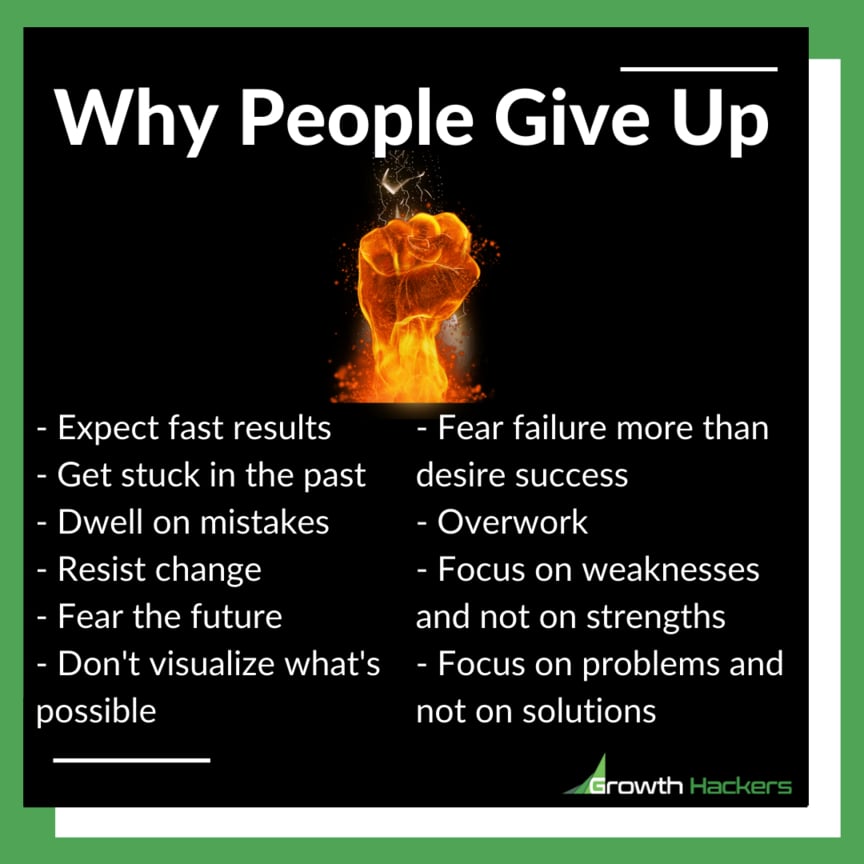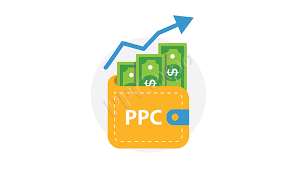Hello!
As with all marketing endeavors, Pay-Per-Click (PPC) marketing can be costly – even more so than it normally is. From planning to execution, a myriad of missteps can put additional, needless strain on your overall marketing budget. Conversely, if implemented correctly, PPC can yield tremendous Return On Investment (ROI) and help businesses achieve financial stability. Thus, especially for startups and small businesses, for which every cent counts, this is a rightfully pressing goal.
Now, there are indeed a plethora of pitfalls to avoid in this regard. Among other factors, suboptimal tools, poor research, and plain inexperience can all converge in varying degrees and sabotage any campaign. Therefore, there can never be a single, universal answer to the problem of costly, likely ineffective PPC campaigns. With that in mind, we may approach how to stop burning your PPC budget one step at a time, and dig deeper as needed.
What’s Making Your PPC Ads Ineffective?
Initially, ineffective ads may likely be burning your PPC budget. Indeed, many businesses may start with a healthy PPC foundation but fail to convert prospects, in turn seeing poor returns. Therefore, let us begin by examining the most common oversights that might be making your PPC ads ineffective.
1. Mobile PPC
 The advent of mobile devices impacted digital marketing on a scale that few other developments did. Since 2017, approximately half of all global website traffic has been generated by mobile users, according to Statista.
The advent of mobile devices impacted digital marketing on a scale that few other developments did. Since 2017, approximately half of all global website traffic has been generated by mobile users, according to Statista.
What's more, as the internet's global penetration only expands over time, the absolute numbers of mobile users should only follow.
Needless to say, then, not catering to half of your potential audience effectively can only burn your PPC budget faster. What this means for PPC campaigns is, of course, that they should be adjusted for mobile traffic.
So consider these tips for mobile PPC:
- Ensure fast and responsive landing pages. This long-standing Search Engine Optimization (SEO) tenet strongly applies to mobile users. Indeed, mobile users bounce from slow websites more quickly than desktop users, and abandon carts more easily. Thus, de-cluttering your design, optimizing your JavaScript, and similar best practices will visibly enhance your PPC campaigns.
- Use call extensions. For all their other uses, including browsing your website, smartphones are still phones. Mobile users may want to call you, and being unable to do so may cost you a conversion. Thus, using call extensions can be a quick and easy fix toward better PPC ROI.
- Design for mobile. Finally, you may serve desktop ads to mobile devices. If you can, however, you may consider designing ads for mobile devices from the ground up. The core principle of mobile-first web design applies to ads; if it works on mobile, it works on desktop.
2. Local PPC
 Mobile traffic aside, local traffic may be equally valuable – particularly for smaller, locally-focused businesses. The two also overlap somewhat, in that most “near me” searches are now done through mobile devices. Therefore, establishing a healthy foundation mobile-wise will, to some extent, also benefit local PPC.
Mobile traffic aside, local traffic may be equally valuable – particularly for smaller, locally-focused businesses. The two also overlap somewhat, in that most “near me” searches are now done through mobile devices. Therefore, establishing a healthy foundation mobile-wise will, to some extent, also benefit local PPC.
Still, much like local SEO, local PPC has its very own set of best practices to dictate.
Thus, if you find that reaching local audiences is burning your PPC budget, you may consider some among them:
• Use Google My Business (GMB). Arguably the spearhead of most local marketing efforts, GMB offers an array of advantages. It allows access to Google's app ecosystem, most notably Google Maps; it serves your NAP information; it informs ad placements. In the context of PPC specifically, it also allows for location extensions, displaying your exact location in search results. When mobile users often visit stores in person within the day, this alone can notably enhance local conversions.
 • Selectively target locally valuable keywords. Similarly to local SEO, local PPC hinges on locally valuable keywords. To do so, you may use your analytics and audience insights to track such keywords and bid accordingly. What’s crucial, however, is to be selective about it; which of your services should you promote? Which keywords best resonate with your local audiences and yield the most profit? Not addressing these questions and bidding indiscriminately can very quickly burn your PPC budget with few returns.
• Selectively target locally valuable keywords. Similarly to local SEO, local PPC hinges on locally valuable keywords. To do so, you may use your analytics and audience insights to track such keywords and bid accordingly. What’s crucial, however, is to be selective about it; which of your services should you promote? Which keywords best resonate with your local audiences and yield the most profit? Not addressing these questions and bidding indiscriminately can very quickly burn your PPC budget with few returns.
• Diversify your ads and copy. Finally, being local may still mean focusing on a large area. In this case, ads and copy that work for one city or town may not work for the next. Thus, if this applies to you, you may consider diversifying both and hyper-focusing on each individual location of value. It may require more effort, but it should also boast much better ROI in the long term.
3. Landing pages
Finally, your landing pages may be underperforming. That’s not uncommon; many businesses struggle to write the perfect content that converts. In fact, Conversion Rate Optimization (CRO) has a dedicated subset specific to it for this reason; Landing Page Optimization (LPO).
While we can’t delve deep into LPO, for the sake of text economy, we may discuss its fundamentals:
• Consolidate your information. Understandably, presenting visitors with clear, accurate, and consistent information is crucial. Consider your Name, Address, and Phone Number (NAP) information; is it consistent across digital profiles, from GMB to social media? If it isn't, it may elicit distrust, hampering your conversion rates in the process. Do prospects find it immediately? If not, you may need to add it above the fold for immediate visibility.
 • Speak the language of your audiences. Should visitors stay, you will then need to entice them with your content. Quality itself is, of course, the cornerstone of converting content, but it also needs to resonate with your specific audiences. To ensure this, you may use your insights and research to determine which style and tone are ideal. Do they value strict professionalism, or do they prefer quirky humor? Do they like technical jargon, or would they rather read conversational content? This is a crucial distinction to make, and it can inform your content creation down to its fundamentals.
• Speak the language of your audiences. Should visitors stay, you will then need to entice them with your content. Quality itself is, of course, the cornerstone of converting content, but it also needs to resonate with your specific audiences. To ensure this, you may use your insights and research to determine which style and tone are ideal. Do they value strict professionalism, or do they prefer quirky humor? Do they like technical jargon, or would they rather read conversational content? This is a crucial distinction to make, and it can inform your content creation down to its fundamentals.
• Enhance your Calls to Action (CTAs). Finally, successful conversions will strongly depend on your CTAs, as they are your direct calls to action. In this regard, you may consider a multitude of factors that affect their effectiveness. As with your NAP, are they clearly visible? If not, you may examine your choice of font and color to ensure they are. Are adjacent elements, like images, distracting visitors away from them? If so, you may modify your layout accordingly. Are they compelling enough? If not, you may strengthen your copy, including by inciting urgency. Consider how, according to Sleeknote, popups with countdown timers performed 113% better than ones without. Psychologically, CTAs with timers function the same way – which is why they still see common use.
What’s Burning Your PPC Budget?
Having explored options to enhance your campaign's effectiveness, something else may still be burning your PPC budget. Unfortunately, missteps and oversights regarding PPC fundamentals are not uncommon, so let us highlight some of the most prevalent ones. Namely, negative keywords, ad tests, and competitor analyses.
1. Negative keyword oversights
 The most crucial aspect of PPC bidding is, likely undeniably, proper keyword research. This topic is indeed so deep it would warrant its own article to properly, thoroughly explore. However, an unfortunately common oversight during keyword research is neglecting negative keywords.
The most crucial aspect of PPC bidding is, likely undeniably, proper keyword research. This topic is indeed so deep it would warrant its own article to properly, thoroughly explore. However, an unfortunately common oversight during keyword research is neglecting negative keywords.
These are what the name might suggest; keywords you don’t want to show up for. In Google’s own words, these “filter out any words or phrases that you don’t want to see in your results. For instance, if you don’t want to target anything with the words "cheap" or "free," this is where you enter those restrictions.”
In essence, negative keywords prevent attracting irrelevant traffic from audiences who are unlikely to convert. Put differently, traffic that may be needlessly burning your PPC budget. This might decrease your overall traffic, but it will increase your traffic quality by ensuring that more qualified leads click on your ads.
2. Few (or no) ad tests
Similarly, testing any element of your campaigns, from web design to copy, is often strongly suggested. Nonetheless, due to budget or time restraints, many overlook ad tests, to the detriment of their PPC budgets.
There are many reasons to do so, however, including the following:
- A/B testing PPC ads is relatively easier since there are fewer variables to test.
- Most PPC platforms provide A/B testing options, and so do other vendors and digital marketing agencies.
- A/B testing is absolutely necessary since you're typically paying for conversions, not impressions alone.
 Moreover, A/B testing is imperative, as trends emerge and change over time. Ads that performed well in the past may not do so today or tomorrow. Finally, theoretical knowledge may only reflect reality so accurately, whereas on-the-field research can offer more reliable results.
Moreover, A/B testing is imperative, as trends emerge and change over time. Ads that performed well in the past may not do so today or tomorrow. Finally, theoretical knowledge may only reflect reality so accurately, whereas on-the-field research can offer more reliable results.
As you conduct A/B tests, consider the following factors among others:
- Test focus. Testing multiple modifications at once may skew your results. Therefore, it’s typically better to focus on one specific element, such as your headline or keywords.
- Test frequency. Testing rarely can leave the factors that are burning your PPC budget unchecked for too long. Conversely, testing often will yield consistent, accurate, and actionable insights.
- Sample size. Finally, it is crucial to extract conclusions from adequate sample sizes. If possible, it’s best to do so from sample sizes of a few thousand impressions for maximum accuracy.
3. No eye on your competitors
 Finally, as with most business endeavors, an eye on the competition is nearly imperative. Competitor analysis will accurately inform you of your competitors' successes and failures, letting you adjust your strategies accordingly. In the context of PPC specifically, it will also provide insights into who you're bidding against.
Finally, as with most business endeavors, an eye on the competition is nearly imperative. Competitor analysis will accurately inform you of your competitors' successes and failures, letting you adjust your strategies accordingly. In the context of PPC specifically, it will also provide insights into who you're bidding against.
Through it, you may discover such fundamental information as:
- Who your competitors are. It may not be direct or offline business competitors you're bidding against, but circumstantial ones. For example, it may be vendors whose niche only slightly overlaps with yours, but who target similar keywords as you.
- What your competitors bid on. As with all competitor analyses, PPC competition analyses can inform you on your competitors' activities. In this case, they can inform you of other keywords they bid on, which can, in turn, inform your strategies.
- Why your competitors compete with you. Finally, it is not entirely uncommon to find competitors who wish to oppose you directly. Consider, for example, bids that only intend to inflate Cost Per Click (CPC) prices. Conversely, consider brands that bid on competitors' brand keywords. Such insights are also crucial to acquire and can inform how you respond.
Road to the Best PPC Budget Definition
To summarize, there are many different factors that may be burning your PPC budget, from beginning to end. From a slow, mobile-unfriendly website to poor copy, style, and CTAs, your website and its content may be underperforming. Conversely, it may be a relative lack of insights; neglecting negative keywords, A/B tests, and competitor analyses.
Finally, it could be specific to an individual campaign's purpose and scope, such as with local PPC campaigns' local value. Thus, to reiterate this article's introduction, there can be no universally applicable answer – only case-by-case examinations and improvements. Still, this cursory exploration may hopefully help you fine-tune your PPC efforts and achieve better cost-efficiency.
Below we have collected a number of interesting articles that almost completely cover all the current problems of promotion and optimization; add them to your bookmarks and keep them always at hand:
- 6 Ways to Promote Your Content on Social Media That Have Been Neglected
- 10 Content Marketing Tactics for your Startup Blog
- Common Social Media Marketing Mistakes to Avoid
- What is Influencer Marketing and How to Work with Social Media Influencers?
- TikTok SEO: A Simple Guide to Rank Your Videos
- WooCommerce vs. BigCommerce – What’s Better for SEO?
- Which Link Building Strategy Is Best For SEO?
- Intro to SEO: Terminology and Metrics
- What is Orphaned Content And How It Can Affect Your SEO?
- How Does Website Security Affect Your SEO
- 6 Affordable Cities for Digital Nomads to Live and Work In
- The Impact Of Digitalization In Entertainment
- Tips That Will Help You Navigate the Digital World Safely
- The Widening Digital Divide Cuts People Out of AI and Automation Careers
- 5 Tools To Improve Your Digital Back Office
- The Digital Transformation of Education
- Top 5 AI Applications Marketers
- How Social Media Marketers Are Using AI To Improve Their Performance
- Demand Generation vs Lead Generation – How They Differ & Why It Matters?
- Top 9 WordPress Lead Generation Plugins
- 8 Steps To Master Attraction Marketing and Skyrocket Your Lead Generation Strategy
- Fascinating Risk Management Tactics That Can Help Your Business Grow
- 3 No-Cost Marketing Tactics You can use Right now to Bring in More Sales
- 10 Tactics to Do SEO for Contractors
- 7 Effective Tactics For Humanizing Your Brand (With Examples)
- Top 5 Healthcare Content Marketing Tactics
- Building Powerful Tactics
- 10 Tactics to Do SEO for Higher Education
- Test Data Management: Strategies for Efficient and Effective Testing
- Reasons You Should Invest in a High-Quality Document Management Software
- What You Need To Know To Improve Your Contract Lifecycle Management
- Virtual Cards and Its Advantages to Business Employees
- 4 Ideas to Make Company Virtual Events Fun for Employees
- 7 Unique Year-End Appreciation Ideas for Your IT Employees
- 5 Strategies To Create An Effective Employee Training Program
- Prioritizing Employee Mental Health: Why It Matters For Business Success
- How to Inspire the Next Generation of Tech Entrepreneurs
- Best Security Tips For Start-Up Entrepreneurs
- Top 10 Startup Ideas You can Steal from Successful Entrepreneurs
Thank you!
Subscribe to our newsletter! Join us on social networks!
See you!






